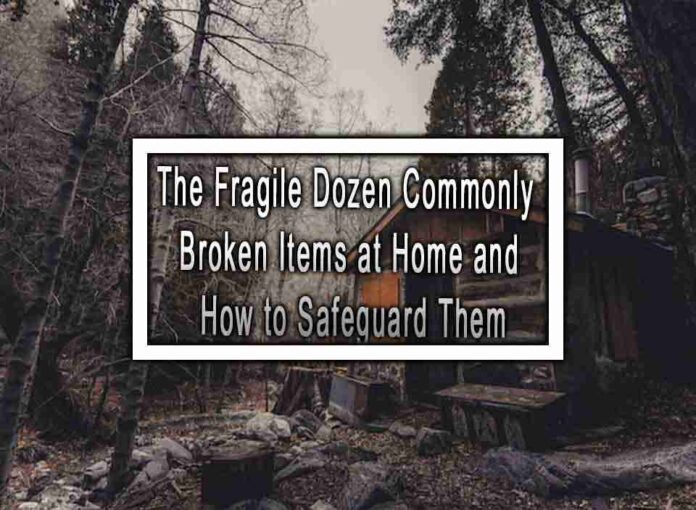Many items at home are prone to breaking due to their delicate nature or frequent use. Here’s a list of commonly broken items and some tips to safeguard them:
1. Glassware and Ceramics:
– Place glassware and ceramics in safe and stable locations. Avoid stacking them too high, and use shelf liners or padding to prevent accidental impacts. Handwash delicate items whenever possible.
2. Electronics (Phones, Laptops, Tablets):
– Use protective cases or covers for electronic devices to prevent damage from accidental drops or impacts. Keep them away from water sources, and handle with care during use.
3. Mirrors:
– Securely mount mirrors on walls using appropriate hardware. Avoid hanging heavy items above mirrors, and handle them gently during cleaning or relocation.

4. Picture Frames:
– Use wall anchors or sturdy hooks to hang picture frames. Avoid overcrowding frames on shelves or walls, as this can lead to accidental collisions and breakage.
5. Lamps and Lampshades:
– Ensure lamps are placed on stable surfaces to prevent tipping over. Use LED bulbs to reduce heat output and the risk of overheating lampshades.
6. Jewelry and Delicate Accessories:
– Store jewelry and delicate accessories in dedicated jewelry boxes or organizers to avoid tangling or damage. Handle with care during cleaning and avoid contact with harsh chemicals.
7. Vases and Pottery:
– Place vases and pottery in areas where they are less likely to be bumped or knocked over. Avoid placing them near the edges of shelves or countertops.
8. Wooden Furniture:
– Avoid placing heavy items on delicate wooden furniture. Use coasters for drinks to prevent water rings and scratches. Regularly clean and condition wood to maintain its integrity.
9. Books and Magazines:
– Handle books and magazines with clean, dry hands to avoid stains and tears. Use bookends to prevent books from falling over and becoming damaged.
10. Toys and Children’s Items:
– Choose durable toys and children’s items made from safe materials. Regularly inspect toys for wear and tear, and discard broken or damaged items promptly.
11. Crockery and Bakeware:
– Store crockery and bakeware carefully in cabinets with padded dividers to prevent chips and cracks. Avoid drastic temperature changes when using them to prevent thermal shock.
12. Plant Pots and Garden Decorations:
– Choose sturdy and weather-resistant plant pots and garden decorations. Securely place them in your garden to prevent tipping over during strong winds or inclement weather.
General Tips:
– Avoid overcrowding shelves, cabinets, and countertops to reduce the risk of items falling or bumping into each other.
– Keep a basic toolkit handy for minor repairs and quick fixes.
– Invest in proper storage solutions to organize and protect fragile items.
– Regularly inspect and maintain household items to address issues before they become major problems.
By taking these precautions and being mindful of how you handle and store delicate items, you can reduce the risk of breakage and prolong the life of your belongings.










